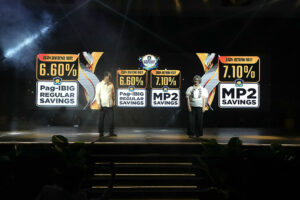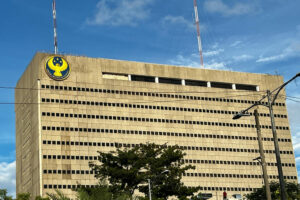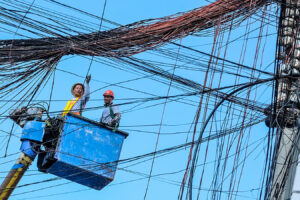By Aubrey Rose A. Inosante, Reporter
THE THAI government’s plan to legalize casinos poses a “big threat” to the Philippine gaming industry, according to Philippine Amusement and Gaming Corp. (PAGCOR) Chairman and Chief Executive Officer Alejandro H. Tengco.
At a briefing on Wednesday, Mr. Tengco said Thailand has an advantage as its tourist arrivals are bigger than the Philippines.
“It is a big threat. Why? Thailand had 35 million tourists, and the Philippines had less than six million,” he said, referring to the international tourist arrival numbers in 2024.
The Thai Cabinet last month approved a draft law to legalize casinos in “entertainment complexes” to boost economic growth. With this plan, the Thai government is looking to attract at least 100 billion baht ($3 billion) in new investments, and to boost foreign tourist arrivals by as much as 10%.
“Instead of coming to the Philippines to gamble, people might just go to Thailand,” Mr. Tengco said.
Mr. Tengco also flagged possible competition from Japan’s first casino-resort that is expected to open in Osaka by 2030.
“They might go to Osaka, Japan instead. That’s why I’m saying we need to prepare well because competition is coming, and it’s better if we get ahead of it,” he said.
The Philippines’ Las Vegas-style Entertainment City has been attracting local and foreign tourists. Several integrated resorts operate in the area, such as Solaire Resort & Casino, City of Dreams Manila and Okada Manila.
Mr. Tengco said PAGCOR must tighten rules and regulations to build its reputation, and push license holders to renovate their “very old looking casinos.”
Mr. Tengco said PAGCOR is also determined to split its dual role of regulator and operator by 2026. “By decoupling, we will be able to show the world that we are fair, that there is no conflict of interest,” he said.
Mr. Tengco remained optimistic about the gaming outlook in the Philippines. He noted the Philippines would easily reach a fresh high of P480-billion gross gaming revenue (GGR) in 2025, which would be mostly driven by the e-gaming segment.
If realized, this would be 16.94% higher than the record-high P410.48 billion in 2024.
The Philippines’ GGR of P410.48 billion ($7.09 billion) was the second highest in Asia last year, after Macau’s GGR which stood at 226.78 billion Macanese pataca ($28.32 billion).
A Citi report in November projected Thailand’s GGR could hit as much as $9.1 billion once it is fully developed. This would make it the second biggest in Asia, after Macau.
Philippine Institute for Development Studies Senior Research Fellow John Paolo R. Rivera said that with Thailand’s strategic location, well-developed tourism industry, and global connectivity, would make it more attractive for gaming operators and tourists.
“Investors may reconsider Philippines as a long-term gaming hub if Thailand and Japan offer more stable regulations, tax incentives, and high-quality infrastructure,” he said.
To maintain its regional advantage, Mr. Rivera said the country should position its integrated resorts as entertainment and tourism destinations, not just gaming hubs by adding theme parks and concert venues.
“(They should also) boost marketing efforts for Japanese, Korean, and Chinese high rollers, while also diversifying into new markets like the Middle East, India, and Association of Southeast Asian Nations, Regional Comprehensive Economic Partnership,” he said.
Mr. Tengco said most of the casino goers in the country are from South Korea. Most of these Korean tourists patronize casinos located in Clark, Pampanga.
Meanwhile, Michael Henry Ll. Yusingco, a fellow at the Ateneo de Manila University Policy Center, said Thailand and Japan have a big edge as a tourist destination and are equipped with the necessary infrastructure and services.
“But the Philippines still has ways to differentiate itself in order to get a significant chunk of the gambling market. We may have a lower cost of doing business. And our service industry is robust as well,” he said.
Mr. Yusingco also said elevating the status of our international airports, improving power stability and traffic mobility, will boost competitiveness of the Philippine gaming industry.

















